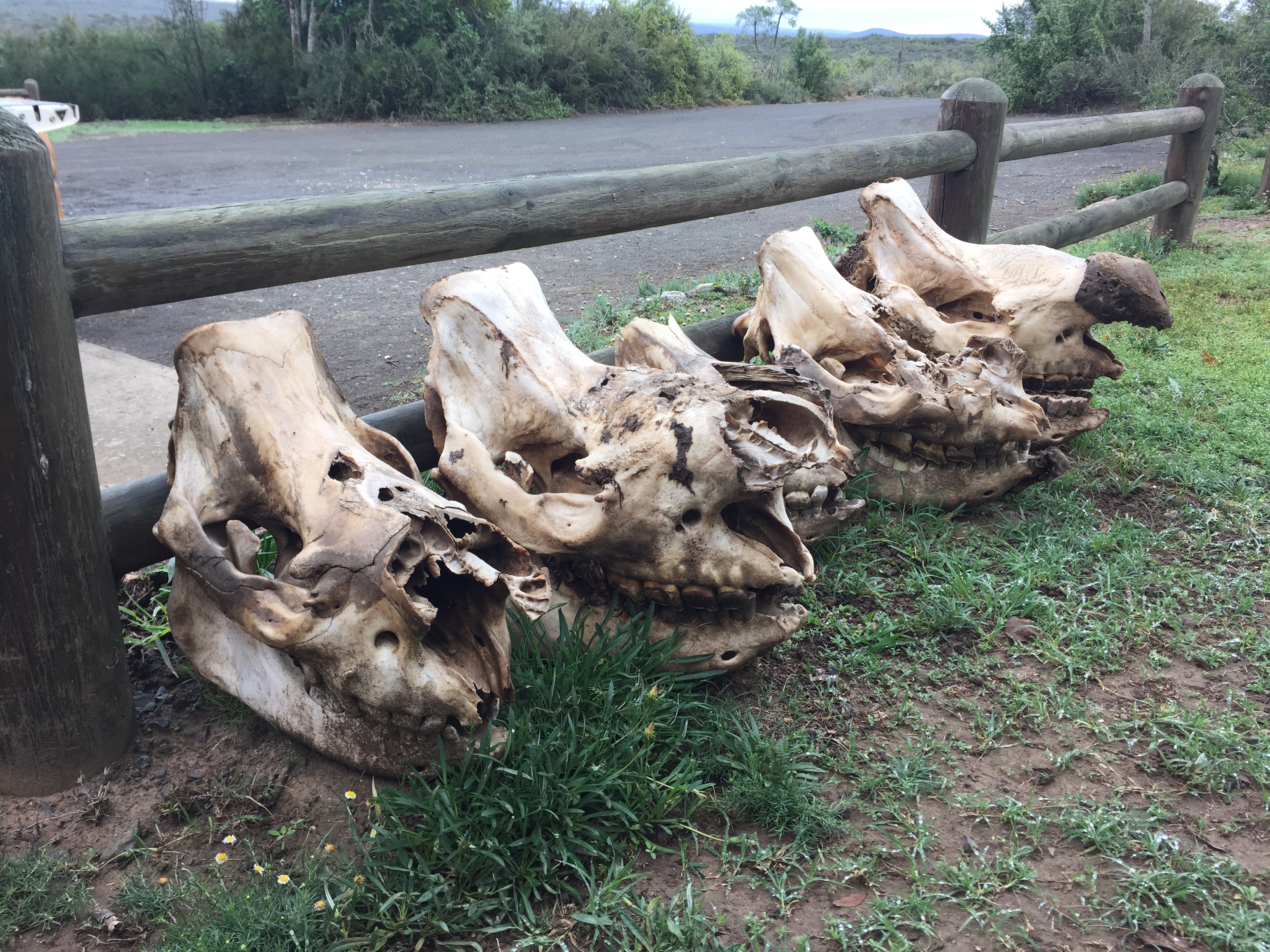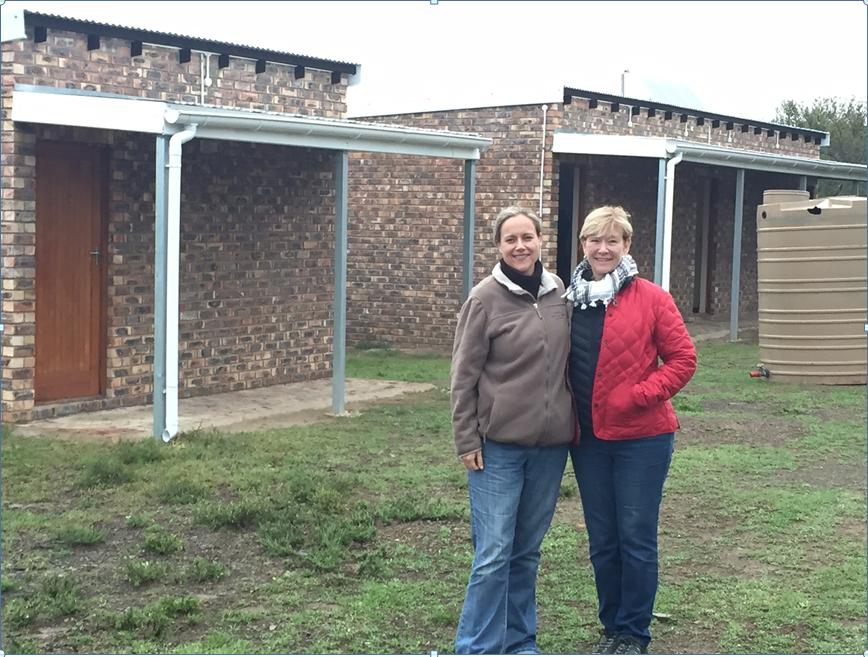Update: Operation: STOP POACHING NOW
We didn’t think rhino poaching could get much worse. But it has.
As we reach the end of 2016, poachers are killing at least three African rhinos per day in South Africa alone. As of the end of September, more than 702 rhinos have been lost in South Africa alone; well over halfway to the 1,175 total lost in 2015.
In 2014, The International Rhino Foundation re-launched its campaign, Operation: STOP POACHING NOW to raise much-needed funds to help turn the tide of rhino killing in the southern African countries hardest hit by the recent poaching surge. Since that time, you have opened your hearts and wallets to raised more than $535,000 on support of this critical work. Every penny used has supported the brave men and women on the front lines of the poaching war in Africa.
You are funding a portfolio of projects, such as building guard posts in vulnerable areas, developing regional rapid response teams, supporting intelligence networks, and funding awareness campaigns in Vietnam.
Efforts to protect rhinos have turned from repelling occasional poaching incursions to an all-out war to keep these magnificent creatures alive. Game rangers — who originally joined parks and reserves because of their love of wild places and wild things — have had to become front-line soldiers fighting in a war they didn’t sign up for. On-the-ground staff in South Africa have undergone an involuntary paradigm shift from a focus on conservation to a focus on anti-poaching. For many, they’ve also had to shift from being a ranger to being a foot soldier or field strategist.
The people on the front lines are giving it everything they’ve got, but are becoming weary. Take a minute to put yourself in their shoes. Can you imagine engaging in armed combat in the morning and returning home to your family in the evening? How would you turn off those emotions? Would you worry constantly about your family living alongside ruthless poachers? How would you send your husband off to work each day knowing there’s a very real possibility that he may not return?
Somehow, rangers and their families are standing strong. These heroes deserve and need our support. By contributing to Operation: STOP POACHING NOW, you’ve let them know they’re not alone – that members of the IRF family all over the world are standing with them.
Thanks to you, we’ve been able to fund projects like the ones below:
Great Fish River Nature Reserve, South Africa
Operation: STOP POACHING NOW continues to support South Africa’s Great Fish River Nature Reserve, which is home to one of the continent’s most significant southern black rhino populations. Their black rhino population is growing at a rate of more than 10% per year and has provided founder stock for the reintroduction of black rhinos to Zambia’s North Luangwa National Park and other areas.
Unfortunately. Great Fish had its first ever poaching incident in February. By April, five animals were lost, including a calf (Figure 1). This new poaching is a result of spillover from Kruger National Park, where poaching levels were reduced last year and this year. With security tightening in Kruger, protected areas in KwaZulu Natal and now, the Eastern Cape Province, are under attack. From January through the end of June 2016, KwaZulu Natal had lost 69 rhinos – 60 white and 9 black rhino – up from 53 for the same period last year.

In late 2014, IRF awarded a $30,000 grant to help protect the reserve’s rhinos by constructing and equipping a new guard post and housing for ranger staff in a critical area of the reserve. There have been no poaching events in that part of the park, as a direct result of the strategic location and ongoing presence of staff in the post, since.
In March of 2016, we have been able to provide an additional $26,412 grant to Great Fish to purchase a secure and effective digital radio communication system to allow enhanced deployment of protection units without fear that anyone is listening to their strategic communications.
In August 2016, IRF secured a $99,000 grant from the United States Fish & Wildlife Service Rhino/Tiger Conservation Fund, which we matched with $24,600 from Operation: STOP POACHING NOW funds, to support building an additional three guard posts and to renovate an old post in strategic locations around the reserve.
IRF Executive Director, Dr. Susie Ellis visited Great Fish again in early September and was able to meet briefly with the guards at the new guard post and also see an additional guard post that is currently under construction, courtesy of the Great Fish Security Manager, Gavin Shaw, and Elise Daffue, Director of StopRhinoPoaching.com (Figure 2).
Gonarezhou National Park, Zimbabwe

Effective protected area management and security relies heavily on the rangers’ ability to communicate with each other while in the field, and their ability to monitor patrol coverage. The topography and size of Zimbabwe’s Gonarezhou National Park (see map, page 3) makes park-wide communication a challenge. Early in 2015, IRF awarded $30,000 to the Frankfurt Zoological Society to upgrade and consolidate the existing digital radio network in the Park to ensure that communication is possible throughout the entire protected area, including tracking of ranger movements and patrol coverage through the GPS-enabled functionality of the digital radios.
The Frankfurt Zoological Society Park Management support program in Gonarezhou seeks to re-establish a viable, breeding black rhino population based on a group of at least 25 founder animals to be moved when the park is secured. Enhancing security in Gonarezhou, even before the rhino population is established, will play a vital role in buffering the growing security threat from Mozambique that could impinge on safety of the neighboring Malilangwe and Save Valley rhino populations in Zimbabwe.
Phinda Private Game Reserve
Northern Zululand’s close proximity to Mozambique and Swaziland make it a prime target for rhino poachers, especially now that security interventions in Kruger National Park’s Southern Section are forcing poachers to seek new grounds. Stakeholders need to proactively keep on top of the evolving and escalating poaching threat to minimize rhino losses. Two areas, in South Africa, Kwa-Zulu Natal and the Eastern Cape province share common poaching methods – indicating that the same poaching groups are likely targeting both areas. Operation: STOP POACHING NOW provided $24,426 in 2014 to the Nyathi Anti-Poaching Unit (APU) in the Eastern Cape region, which works closely with appropriate security officials protecting key rhino populations in that area.
The head of the 200-member Nyathi APU is Barend Lottering, Lottering, who served 14 years on the South African police force, has mobilized managers and security personnel in the reserves surrounding Phinda. Lottering said, “IRF funding gave us the platform to bring people together to develop coordinated responses to poaching incursions. All of the reserves near Phinda are coordinated now, with 24-hour patrols on the major roads and along fence lines. When there is suspicious activity or an incursion, everyone in the area drops everything and deploys in their designated role. It’s been an enormous effort in team-building; the team shares successes and even though there are sometimes setbacks, positive results get people motivated and excited.”
Lottering emphasizes that the successes rely heavily on the ability to coordinate secure communications among the first responders. Operation: STOP POACHING NOW provided an additional $16,000 in funding at the end of 2015 for the Nyathi APU to purchase a digital radio system that will allow protected communications during responses to poaching incursions.
As of the last grant report, coordinated action among the reserves had led to numerous arrests of suspects and confiscation of hunting rifles, handguns, rounds of ammunition, and silencers. These arms, suspected of being used for poaching, can now be processed through the South African legal system. By removing weapons and ammunition from the criminal networks, we are able to save the lives of an untold number of rhinos.
Big Game Parks, Swaziland
In 2014, Operation: STOP POACHING NOW provided a $15,000 grant to Swaziland’s Big Game Parks, which manages Hlane Royal National Park, Mlilwane Wildlife Sanctuary, and Mkhaya Game Reserves where both white and black rhino populations are currently growing. The grant aims to help enhance security measures by engaging local communities. Swaziland shares an international border with Mozambique, as does South Africa, across which poachers and smugglers are able to move with relative ease, trafficking rhino horn and other illegal wildlife products to Asian markets. IRF’s grant funding provides incentives for information that leads to the arrest of suspected poachers.
In March 2014, Mkhaya Game Reserve lost its first rhino to poaching since December 1992. Early on the morning of 10 January 2015, Mkhaya rangers became involved in an armed contact with two rhino poachers – one poacher was killed and one injured poacher managed to escape. These suspects matched known descriptions and indeed, the deceased turned out to be a Mozambican national. Most poaching suspects are from Mozambique, and come in and out of the Swaziland parks quickly. Speedy and united responses are critical to protecting rhinos from poaching gangs, as are rewards for information that proactively prevent these poaching incursions.
In 2016, the southern African region is experiencing what has been described by some as the worst drought in living memory. The effects of this drought are far ranging and have been particularly intense in the Lowveld, where Swaziland’s rhinos live. Within this region, the drought has been most intense in the southern Lowveld area.
IRF awarded a $20,000 emergency grant in 2016 to Swaziland’s Big Game Parks to purchase and transport hay and lucerne from South Africa to enable them to continue feeding the rhinos that have been receiving supplementary feed for nearly 2 years in Mkhaya. Without this support, the park was on track to run out of hay before the end of the dry season. Unfortunately, this is the only way that these rhinos will be able to survive the drought without having to be moved to a new location, which may not be as secure as Mkhaya.
StopRhinoPoaching.com
Operation: STOP POACHING NOW funding has provided $36,000 over the past 2 years to support core organizational costs for our partner StopRhinoPoaching.com (SRP), led by Elise Daffue, who is a key advisor for IRF’s resource investment in South Africa. SRP bases its support of projects on the size of the rhino population with key (large) populations taking preference, existing security efforts, and impact of support. SRP has channeled significant support to larger rhino populations that are managed by dedicated and responsible conservation-minded rhino owners/custodians. SRP also focuses on the rangers, anti-poaching units, security, and managers, – the thin green line that stands between the poachers and the rhinos.
Rangers form the frontline in protecting our natural heritage for future generations. Their work is often dangerous, difficult, unappreciated, and unrecognized. Rangers dedicate their lives to wildlife protection. The current poaching epidemic hasn’t only impacted rhinos, but also elephants and other iconic African species. The rangers are increasingly finding themselves in combat situations – and paying a significant physical and mental toll. An additional $12,500 of funding in 2016 has gone through StopRhinoPoaching.com to support ranger well-being in South Africa’s Kruger National Park, including counseling for families of rangers, who are dealing with constant threats from poachers often living in their communities, as well as other associated issues. www.stoprhinopoaching.com
IUCN/SSC African Rhino Specialist Group
The IRF provided $22,500 from 2015 to 2016 for core support to the African Rhino Specialist Group, to partially fund the time of the Scientific Program Officer to prepare the joint documents for the CITES COP17 (with which Dr. Susie Ellis and Dr. Bibhab Talukdar, IRF’s Asian Rhino Coordinator and chair of the Asian Rhino Specialist Group also assisted). A portion of that funding was used to support the meeting of the Specialist Group in Kruger National Park in February 2016. Mr. Raoul du Toit, IRF African Rhino Coordinator, Ms. Natasha Anderson, Zimbabwe Rhino Monitoring Coordinator, and Drs. Talukdar and Ellis attended the meeting.
Education for Nature – Vietnam
IRF’s Operation: STOP POACHING NOW campaign also supports rhino horn demand reduction efforts in consumer nations. We have provided two grants in the past 3 years of $30,000 each to Education for Nature – Vietnam (ENV), with co-funding provided by our partner, Save the Rhino. ENV began a rhino horn demand reduction campaign 3 years ago in Vietnam, the major rhino horn consumer state. The campaign has focused on reducing demand and strengthening law enforcement and legislation, using a range of approaches including public events, mass media (TV, radios, media articles and internet), and consumer targeted initiatives.
We have recently requested several new proposals and hope to award more Operation: STOP POACHING NOW grants before the end of the year.

3 thoughts on “Update: Operation: STOP POACHING NOW”
Fascinating, yet worrying update. I’m afraid I can’t donate at the moment, but I have promoted the link via Twitter. Good luck with all the great work you do.Rob Sheldonhttp://www.rdsconservation.com/about-me/Follow me on Twitter @_robsheldon
From: The International Rhino Foundation Blog To: vanellus1970@yahoo.co.uk Sent: Tuesday, 29 November 2016, 18:59 Subject: [New post] Update: Operation: STOP POACHING NOW #yiv1942006255 a:hover {color:red;}#yiv1942006255 a {text-decoration:none;color:#0088cc;}#yiv1942006255 a.yiv1942006255primaryactionlink:link, #yiv1942006255 a.yiv1942006255primaryactionlink:visited {background-color:#2585B2;color:#fff;}#yiv1942006255 a.yiv1942006255primaryactionlink:hover, #yiv1942006255 a.yiv1942006255primaryactionlink:active {background-color:#11729E;color:#fff;}#yiv1942006255 WordPress.com | rhinosirf posted: “We didn’t think rhino poaching could get much worse. But it has.As we reach the end of 2016, poachers are killing at least three African rhinos per day in South Africa alone. As of the end of September, more than 702 rhinos have been lost in South Afr” | |
I have been witnessing poachers living a normal life without fear of authorities in southern Mozambique, as authorities just ignore them. Today one is broke and all of a suddenly he is driving an expensive car. I know most of them and my heart bleeds, what will become of our rhinos? I have no power, but I need to help to stop this madness!